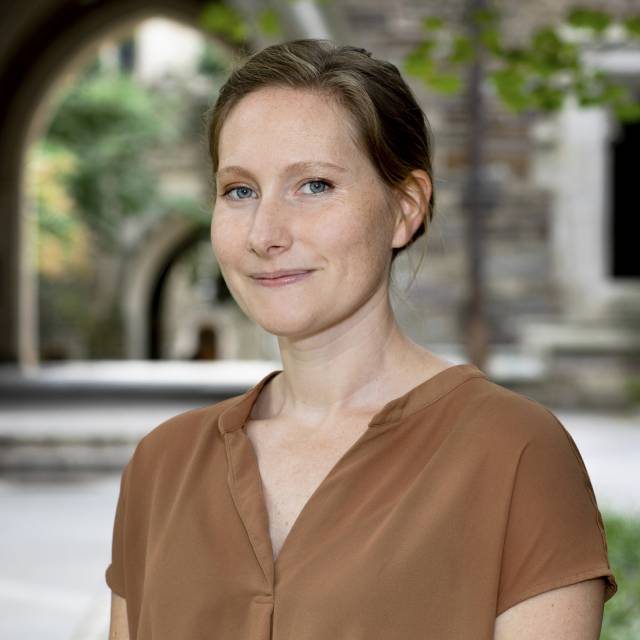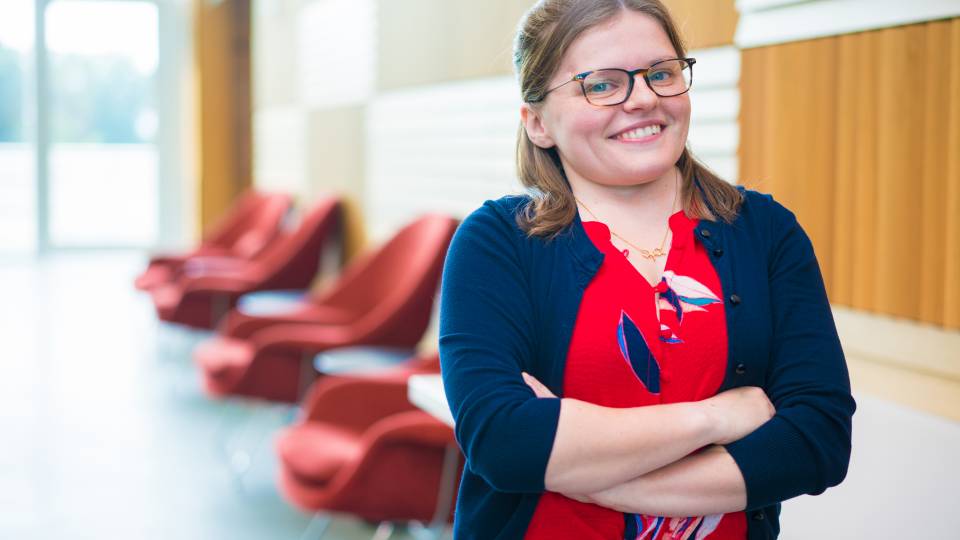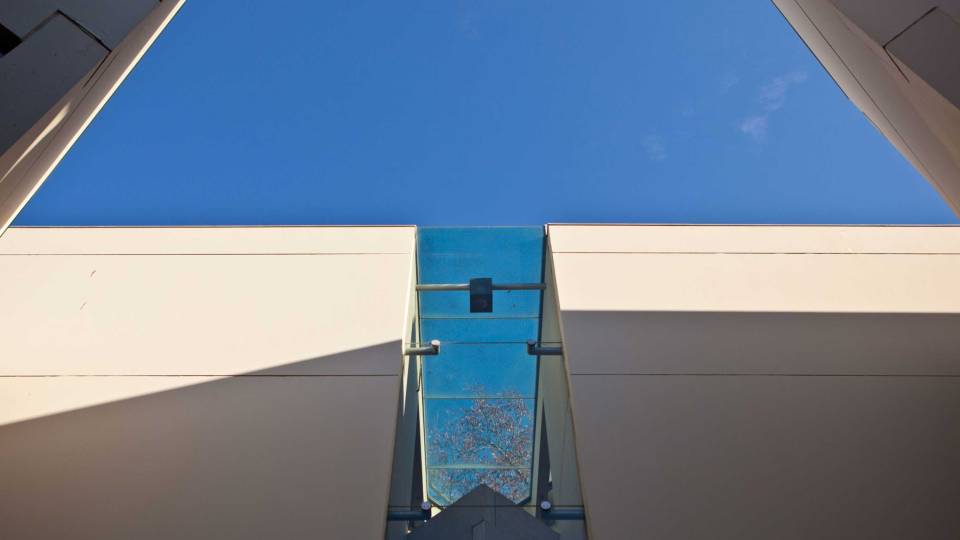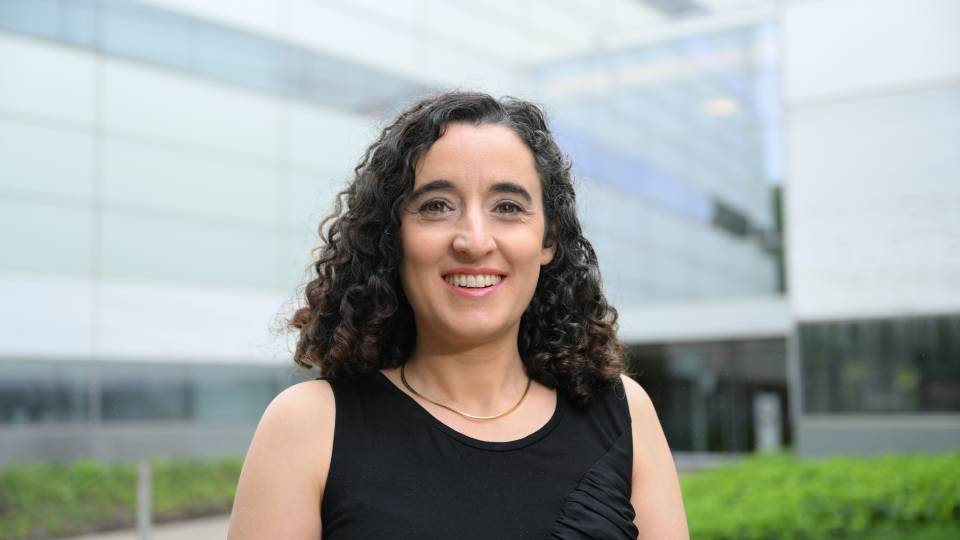The Howard Hughes Medical Institute (HHMI) announced that ecologist Sarah Kocher is one of the 31 new Freeman Hrabowski Scholars from 22 institutions. Freeman Hrabowski Scholars are outstanding early career faculty in science who have potential to become leaders in their research fields and to create diverse and inclusive lab environments in which everyone can thrive.

Sarah Kocher
Kocher, an assistant professor of ecology and evolutionary biology and the Lewis-Sigler Institute for Integrative Genomics, is investigating what shapes variation in social behavior. Her lab has developed new tools to study social behavior across different scales, from the molecular building blocks of the “social brain” to the ecological and evolutionary forces that shape social evolution.
Her research focuses on a unique group of bees that includes solitary, social, and socially flexible lineages. In these bees, social behavior has been independently gained and lost multiple times, creating an ideal framework for uncovering the factors shaping social behavior and its evolution.
After completing her B.S. as one of the first graduates of the Integrative Biology program at the University of Illinois Urbana-Champaign, Kocher went on to study the genetic and physiological underpinnings of queen-worker interactions in honey bees at North Carolina State University, where she completed her Ph.D. in 2009. At Princeton, her lab group combines genetic studies with field work and laboratory observations to understand the wide variations in insects’ social behavior. By weaving together genetics, genomics, observations and experiments, her team is able to identify both the key molecular mechanisms underlying these behavioral variations and the environmental factors that influence them.
Among Kocher's other major awards are a 2022 Pew Scholarship in the Biomedical Sciences from the Pew Charitable Trusts, a 2021 Packard Fellowship for Science and Engineering from the David and Lucile Packard Foundation, and a 2019 New Innovator Award from the National Institutes of Health.
“Each of our Freeman Hrabowski Scholars has demonstrated their unique potential to advance cutting-edge science and carve out pathways for the inclusive development of postdocs, students, and other researchers,” said HHMI Vice President and Chief Scientific Officer Leslie Vosshall. “We are thrilled to welcome this inaugural cohort to HHMI, and we are proud to support each Scholar’s contributions to the broader scientific community in the years to come.”
Freeman Hrabowski Scholars will be appointed to a five-year term, renewable for a second five-year term after a successful progress evaluation. Each scholar will receive up to $8.6 million over 10 years, including full salary, benefits, a research budget and scientific equipment. In addition, they will participate in professional development to advance their leadership and mentorship skills.
HHMI anticipates that the scholars will work toward becoming leaders in their field and believes that, by fostering equitable and inclusive environments in their labs, these scholars will provide a strong foundation for their trainees’ future success in science.
“The Freeman Hrabowski Scholars program reflects HHMI’s continued commitment to supporting people, not projects,” said HHMI President Erin O’Shea. “We aim to provide Scholars with the resources they need to pursue scientific breakthroughs and empower others to ask critical research questions. In this way, our Scholars are well positioned to make an indelible impact on the future of science.”
The Freeman Hrabowski Scholars Program represents a key component of HHMI’s diversity, equity and inclusion commitment. Over the next 20 years, HHMI expects to hire and support up to 150 Freeman Hrabowski Scholars — appointing roughly 30 every other year for the next 10 years. The Institute has committed up to $1.5 billion for the Freeman Hrabowski Scholars to be selected over the next decade.
HHMI named the program in honor of Freeman A. Hrabowski III, President Emeritus of the University of Maryland, Baltimore County, and a major force in increasing the number of scientists, engineers and physicians from backgrounds underrepresented in science in the U.S. HHMI announced the launch of the Freeman Hrabowski Scholars program in May 2022.





